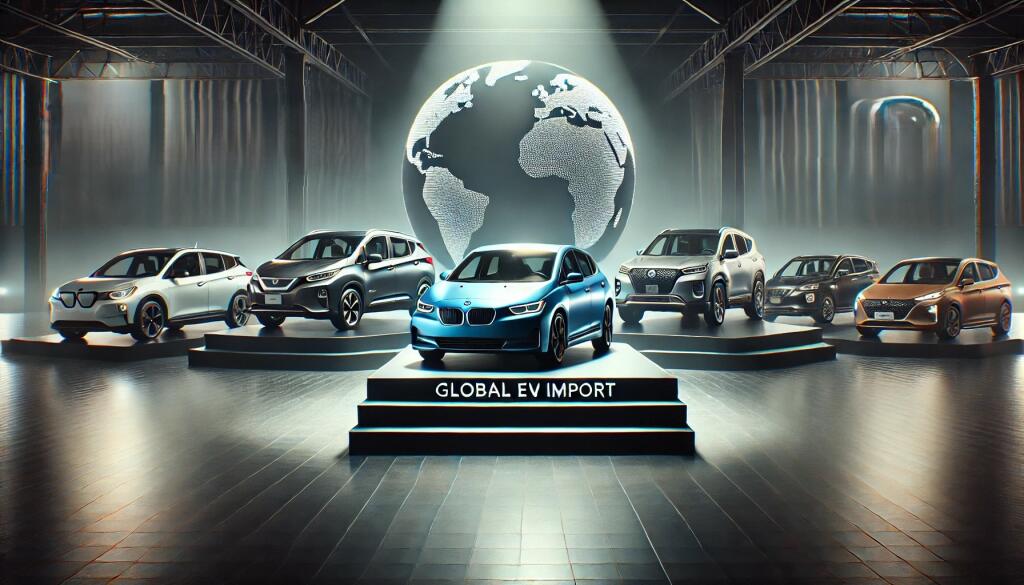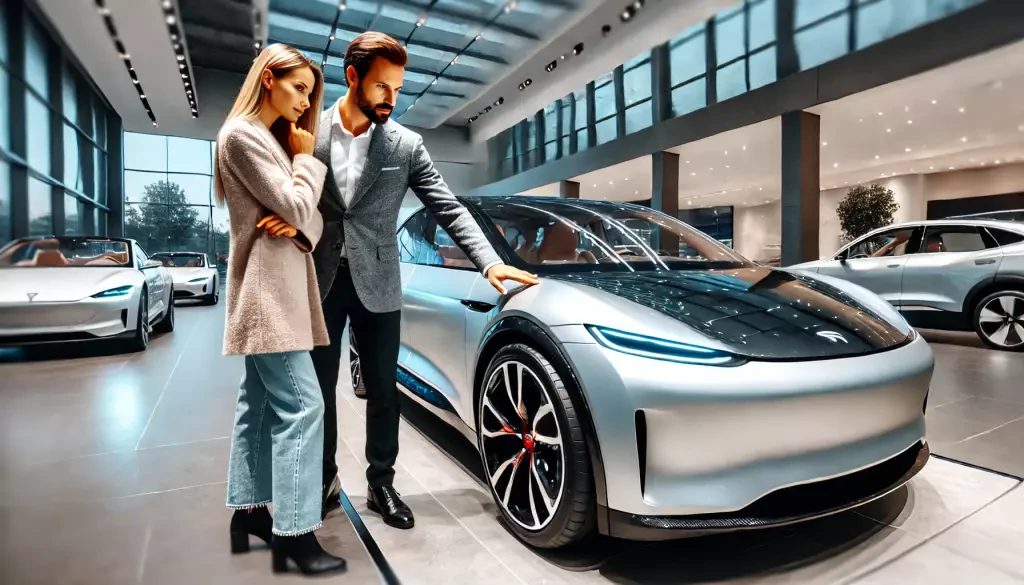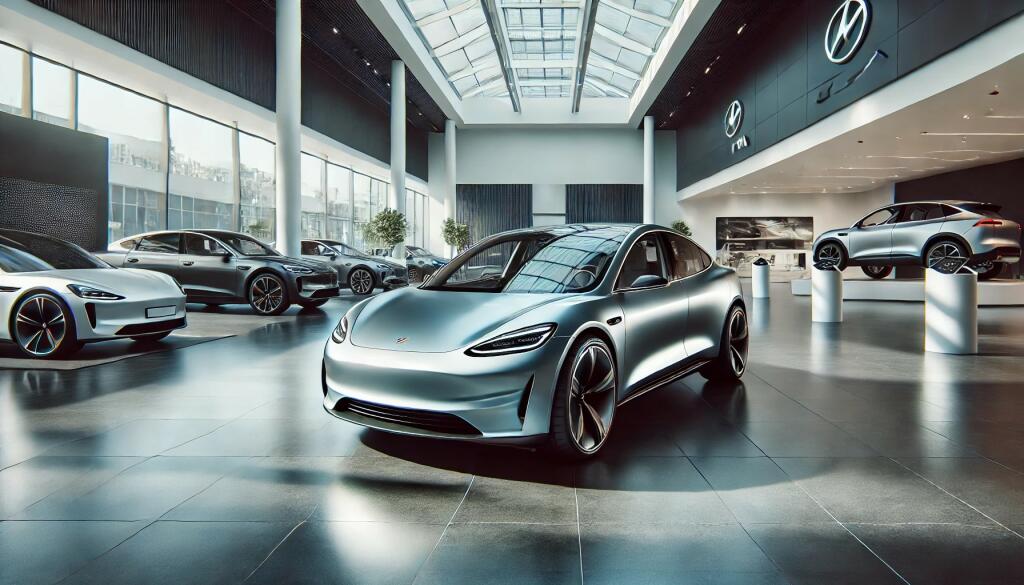Does the US Import Electric Vehicles?
Introduction to Electric Vehicle Imports in the US
The automotive industry is experiencing a major shift, with electric vehicles (EVs) leading the way. Over the past decade, EVs have gone from being a niche choice for eco-conscious drivers to becoming a popular option for regular consumers.
Electric vehicle production now competes with traditional gas-powered cars. Concerns about climate change are growing, and more people want to reduce their reliance on fossil fuels. This is quickly bringing about the switch to EVs in the domestic market.
The American market produces some of its electric vehicles but still depends on foreign automakers. International trade is necessary to meet consumer demand and keep up with the overall growth rate of the EV market. So, let’s examine the current state of EV imports in the US, study the key players, and find out what the future might hold.

Current State of Electric Vehicle Imports in the US
EV imports have become a key part of the US auto industry. Recently, the number of cars imported from foreign electric vehicle factories has steadily increased.
In 2023, around 200,000 EVs were imported into the US from European countries, Asian automakers, or Chinese companies. This number continues to surge as more economic models appear in the market and draw consumer attention.
The US imports EVs from many major Asian and European countries, including Germany, Japan, and South Korea. Germany is a leading exporter, with premium brands like BMW, Volkswagen, and Mercedes-Benz sending a steady stream of luxury EVs to the American market.
With its large production capacity, Japan plays a huge role in exporting mid-range EVs. South Korea also offers quality EVs through brands like Hyundai and Kia.
Chinese-made EVs such as NIO, BYD, and XPeng are now starting to make their mark in the US auto industry. Although Chinese imports currently account for a smaller portion of the US market, this is expected to change as these auto companies expand their reach.
Key Players in the Electric Vehicle Market
The electric vehicle market features a mixture of established automakers and newer, specialized companies. Several key players stand out when it comes to imports.
Tesla
A global powerhouse in the EV world, this domestic product is mainly manufactured in the US. However, Tesla also imports some models from its Shanghai Gigafactory. Elon Musk's global approach ensures that Tesla can meet market demand.
BMW and Mercedes-Benz
These are two of the biggest European brands exporting their vehicles to the US. Their luxury electric models, like the BMW iX and Mercedes-Benz EQ series, are popular among American consumers looking for premium options.
Nissan and Toyota
The leading Japanese brands in the US automotive sector are Nissan and Toyota. Nissan was an early mover with its Leaf model, and while it's now switched to domestic manufacturing, many of its components were initially imported. Toyota, originally known for its expertise in hybrid vehicles, is slowly moving toward fully battery-powered models.
Hyundai and Kia
These South Korean brands are quickly entering the North American market with their EVs, particularly the Hyundai Ioniq and Kia EV6. These brands offer a blend of quality, technology, and affordability that is appealing to many consumers.
BYD and XPeng
Due to lower production costs, these Chinese automakers are starting to gain traction with their innovative features and cheap imports. While their presence in the US is still growing, Chinese-produced EVs are in the position to become significant players as they expand their operations.
Even though domestically manufactured EVs are increasing, imported vehicles offer more choices due to lower production costs. These various options are crucial for keeping the auto industry competitive and encouraging the market's overall growth.

Factors Influencing EV Imports
Several factors, including tax incentives, tariffs, consumer preferences, and market trends, shape the feasibility of importing EVs into the US.
Tax incentives and tariffs on EVs are major players in this space. The US offers various incentives to encourage EV adoption, like federal tax credits for buyers. These can make imported EVs more attractive, especially with state-level perks.
However, additional tariffs, particularly on Chinese vehicles, can drive up prices and make imports less competitive against options produced within the country.
Consumer demand also drives EV imports. Many Americans prefer foreign brands, especially European or Japanese vehicles known for their reliability and luxury. This, in itself, causes a steady flow of imported EVs.
Model availability is another consideration. Some EVs that are popular worldwide may not be produced domestically or might hit the US market later than in other regions. In this case, imports become necessary to meet customer demand.
Environmental Implications of EV Imports
The environmental impact of EV imports is complex and involves factors like carbon footprint, transportation emissions, and overall sustainability.
Carbon footprint is a major consideration. Manufacturing EVs is energy-intensive, and the production location can significantly affect the carbon emissions associated with a vehicle. For example, an EV produced in a country reliant on fossil fuels for energy may have a higher carbon footprint than one made in a region with cleaner energy sources.
Transportation emissions are also important. Importing vehicles from overseas involves shipping, which contributes to greenhouse gas emissions. The distance traveled, and the method of transport can impact the environmental footprint of imported EVs.
When comparing imported EVs to domestically produced models, it’s important to consider not just production and transport emissions but also the manufacturers' sustainability practices. Some companies are taking significant steps to reduce their environmental impact, such as using renewable energy in production and sourcing sustainable materials.
Conversely, the wide availability of imported EVs can accelerate the shift to electric mobility in the US, which is crucial for reducing overall carbon emissions. By offering more options, imports can help boost EV adoption and support environmental sustainability.
Future Trends in EV Imports
Several trends are likely to shape the future of EV imports in the US.
Import growth will continue, particularly as global automakers expand their electric vehicle offerings. As more countries ramp up their EV production, the US will likely see an increase in the variety and volume of imported electric vehicles.
Regulatory changes could also significantly impact the industry. The US government is increasingly focused on promoting domestic EV production, as seen in initiatives like the Inflation Reduction Act, which offers incentives for American-made EVs. These policies pose import challenges and push foreign manufacturers to set up production in the US.
Technological advancements in EVs, such as improvements in battery technology and autonomous driving features, will also influence import trends. As global automakers develop new and innovative features, demand for these advanced vehicles in the US will likely grow.
Finally, consumer preferences will continue to evolve. As more Americans embrace electric vehicles, their expectations for performance, range, and features will rise. Imported vehicles offering cutting-edge technology or unique designs capture a significant market share.

Final Thoughts on EV Imports in the US
Electric vehicle imports are now a key part of the US market, offering consumers a wider range of choices and driving competition. While domestic EV production is rising, imports from countries like Germany, Japan, South Korea, and China play a significant role in meeting American demand for electric vehicles.
As the EV market continues to grow and evolve, it’s important to stay informed about the options available, whether you’re considering a domestically produced model or an imported one.
If you're considering buying an electric vehicle or need to transport one across the country, consider contacting A-1 Auto Transport. We can help you navigate the logistics and ensure your EV gets where it needs to go safely and efficiently!
Comments
Post a Comment